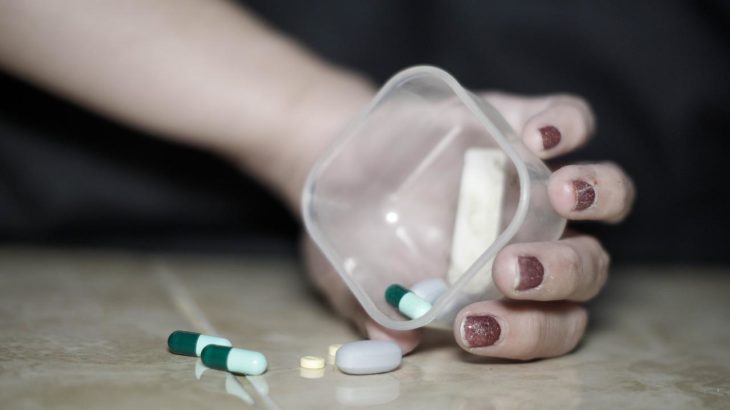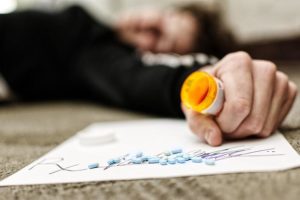If you have cancer, you know that fatigue is one of the most common side effects. Cancer-related fatigue can be challenging to cope with, especially when you don’t feel well. But it doesn’t mean you can’t stay energized throughout the day. There are ways to cope with cancer-related fatigue and stay as energetic as possible. For starters, you can take a Bio Lyfe CBD gummy daily and eat a healthy diet. But what else should you incorporate into your everyday life? This blog post will discuss some handy tips that can help you fight fatigue and keep your energy levels up.
Get Your Body Moving as Much as Possible
 One of the best ways to fight cancer-related fatigue is to get your body moving. Exercise can help increase your energy levels, improve mood, and promote better sleep. It doesn’t have to be intense exercise; even moderate activity can make a difference. Take a brisk walk around the block, go for a swim, or take a yoga class. If you’re not used to exercising, start slow and build up your endurance over time.
One of the best ways to fight cancer-related fatigue is to get your body moving. Exercise can help increase your energy levels, improve mood, and promote better sleep. It doesn’t have to be intense exercise; even moderate activity can make a difference. Take a brisk walk around the block, go for a swim, or take a yoga class. If you’re not used to exercising, start slow and build up your endurance over time.
And be sure to listen to your body; if you’re feeling too tired, take a rest. The important thing is to get moving and keep your body as active as possible.
Eat Healthy Food Often Throughout the Day
 In addition to exercise, what foods and how often you eat them can also affect your energy levels. When trying to fight cancer-related fatigue, it’s essential to fuel your body with healthy foods that will give you sustained energy throughout the day. Eat small meals or snacks every few hours, and include plenty of fruits, vegetables, whole grains, and lean protein in your diet. And don’t forget to stay hydrated; drink plenty of water.
In addition to exercise, what foods and how often you eat them can also affect your energy levels. When trying to fight cancer-related fatigue, it’s essential to fuel your body with healthy foods that will give you sustained energy throughout the day. Eat small meals or snacks every few hours, and include plenty of fruits, vegetables, whole grains, and lean protein in your diet. And don’t forget to stay hydrated; drink plenty of water.
Level Up Your Hydration
As mentioned, drinking plenty of water is essential. But since your body is going through a lot, it’s also important to level up your hydration. That means adding electrolytes to your water, which can help you stay hydrated and fight fatigue. You can find electrolyte-enhanced waters at the store or make your own by adding a pinch of salt, a squeeze of lemon, and a teaspoon of honey to a glass of water. Drink this throughout the day, and you’ll start to feel more energetic in no time.
Stay Positive and Upbeat
 When you’re fighting cancer, feeling down and defeated is easy. But it’s important to stay upbeat as much as possible. Negative thoughts can make fatigue worse, so do your best to focus on the good. Spend time with friends and family, do things you enjoy, and find ways to laugh every day. It may seem small, but staying positive can significantly affect your energy levels. Cancer-related fatigue is inevitable for many people, but that doesn’t mean you have to give in to it.
When you’re fighting cancer, feeling down and defeated is easy. But it’s important to stay upbeat as much as possible. Negative thoughts can make fatigue worse, so do your best to focus on the good. Spend time with friends and family, do things you enjoy, and find ways to laugh every day. It may seem small, but staying positive can significantly affect your energy levels. Cancer-related fatigue is inevitable for many people, but that doesn’t mean you have to give in to it.
You can fight fatigue and keep your energy levels up with a little effort. So get moving, eat healthy foods, stay hydrated, and stay positive, and you’ll be feeling better in no time. In fact, many people find that these lifestyle changes help them even after they’ve finished treatment. So give it a try, and see how you feel.



 Infectious endocarditis is a severe complication associated with intravenous drug use. It’s caused by bacteria that enter the bloodstream and attach to the heart valves. This can lead to inflammation, damage to the valves, and even heart failure. Infectious endocarditis is a rare but potentially fatal condition that requires immediate medical attention. Not only is it essential to seek medical help if you think you have infectious endocarditis, but it’s also important to avoid risky behaviors that can put you at risk for this condition.
Infectious endocarditis is a severe complication associated with intravenous drug use. It’s caused by bacteria that enter the bloodstream and attach to the heart valves. This can lead to inflammation, damage to the valves, and even heart failure. Infectious endocarditis is a rare but potentially fatal condition that requires immediate medical attention. Not only is it essential to seek medical help if you think you have infectious endocarditis, but it’s also important to avoid risky behaviors that can put you at risk for this condition. It’s also worth noting that some people who abuse opioids may be at increased risk for developing anxiety and bipolar disorder. This is because of the changes that opioids cause in the brain. If you have a history of mental illness, it’s essential to be aware of this potential side effect. A study published in the American Journal of Psychiatry found that people who abuse opioids are more than twice as likely to develop bipolar disorder. The side effects of opioid abuse are severe and can be life-threatening.
It’s also worth noting that some people who abuse opioids may be at increased risk for developing anxiety and bipolar disorder. This is because of the changes that opioids cause in the brain. If you have a history of mental illness, it’s essential to be aware of this potential side effect. A study published in the American Journal of Psychiatry found that people who abuse opioids are more than twice as likely to develop bipolar disorder. The side effects of opioid abuse are severe and can be life-threatening.